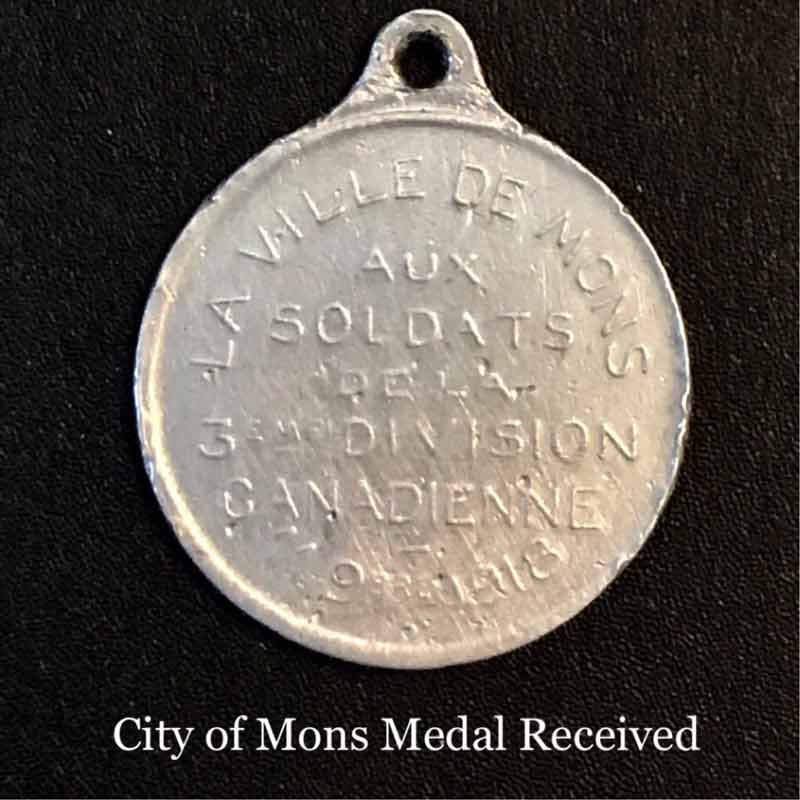
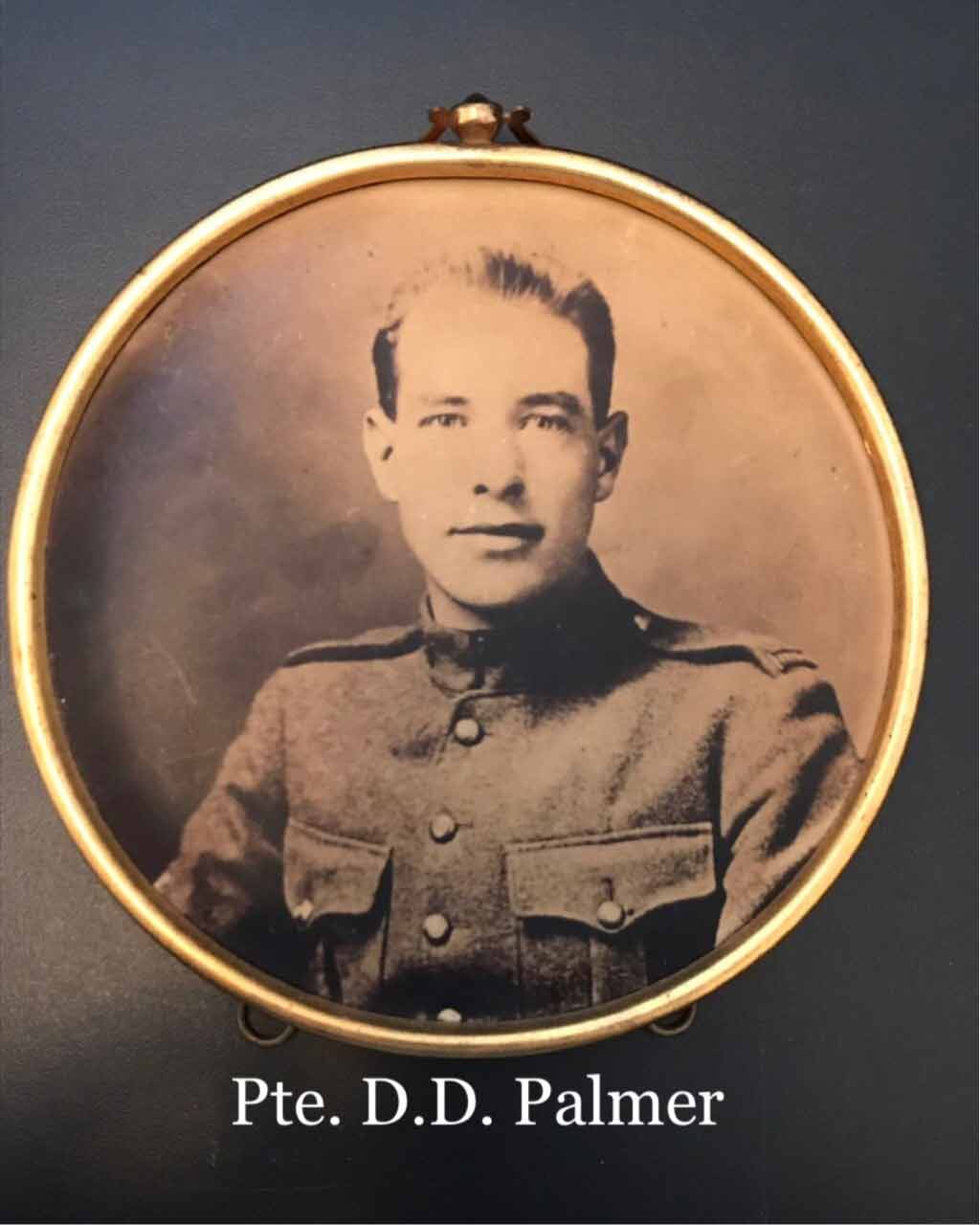
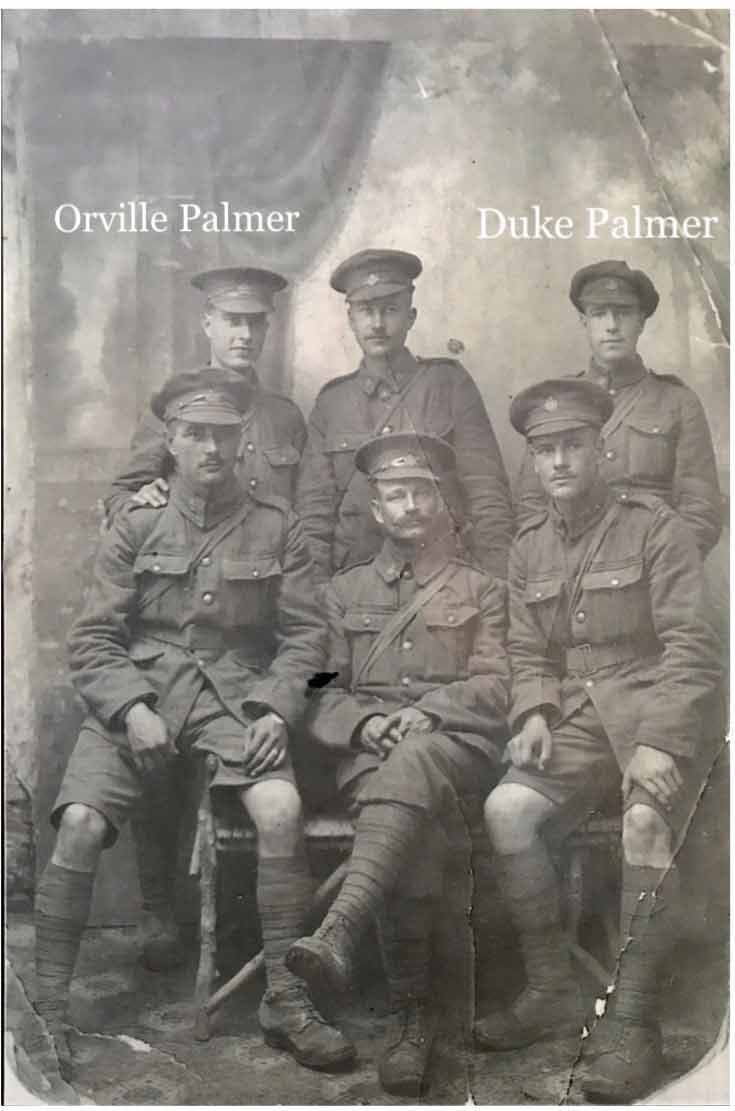

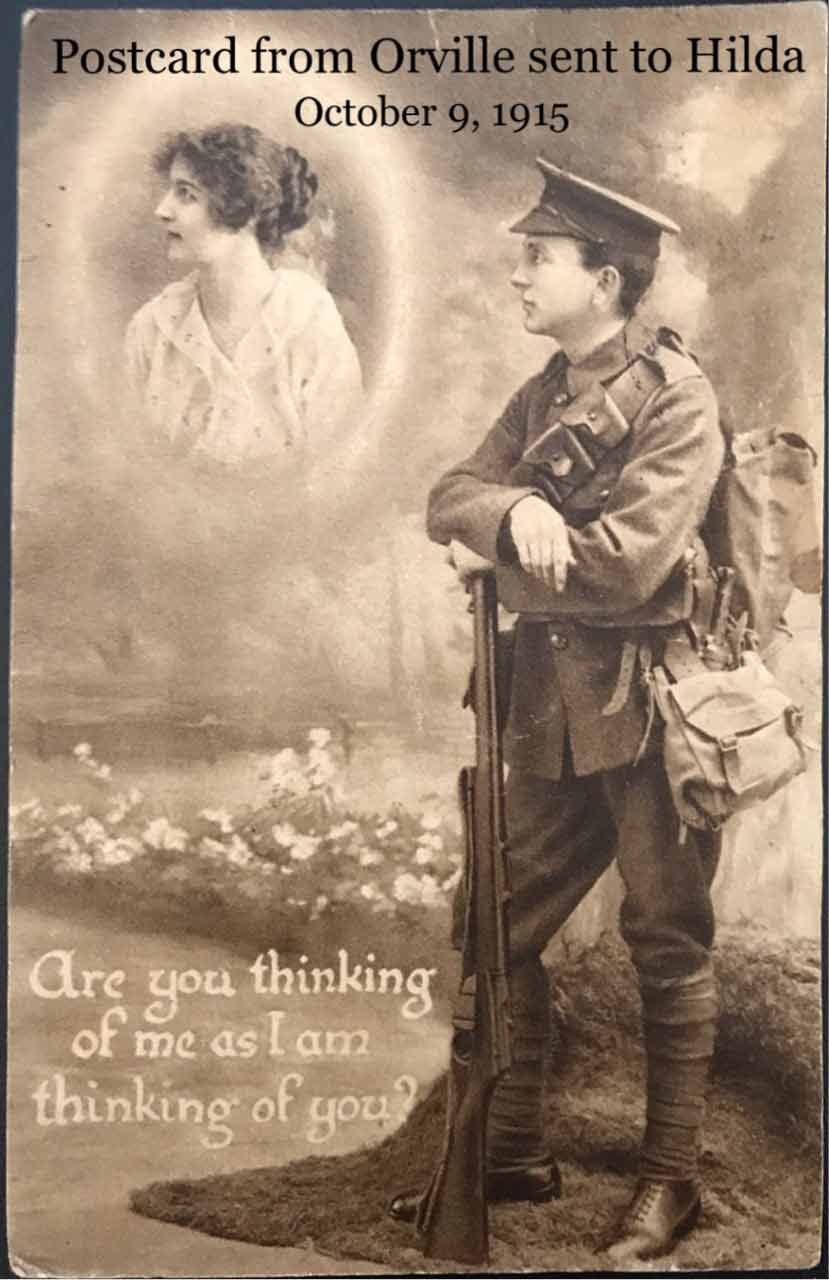
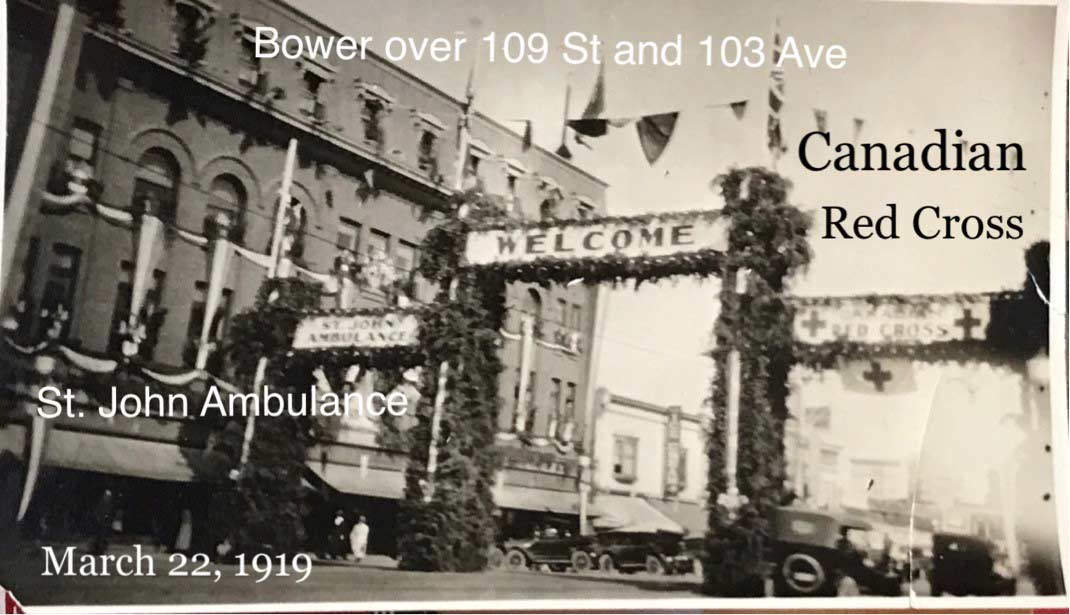
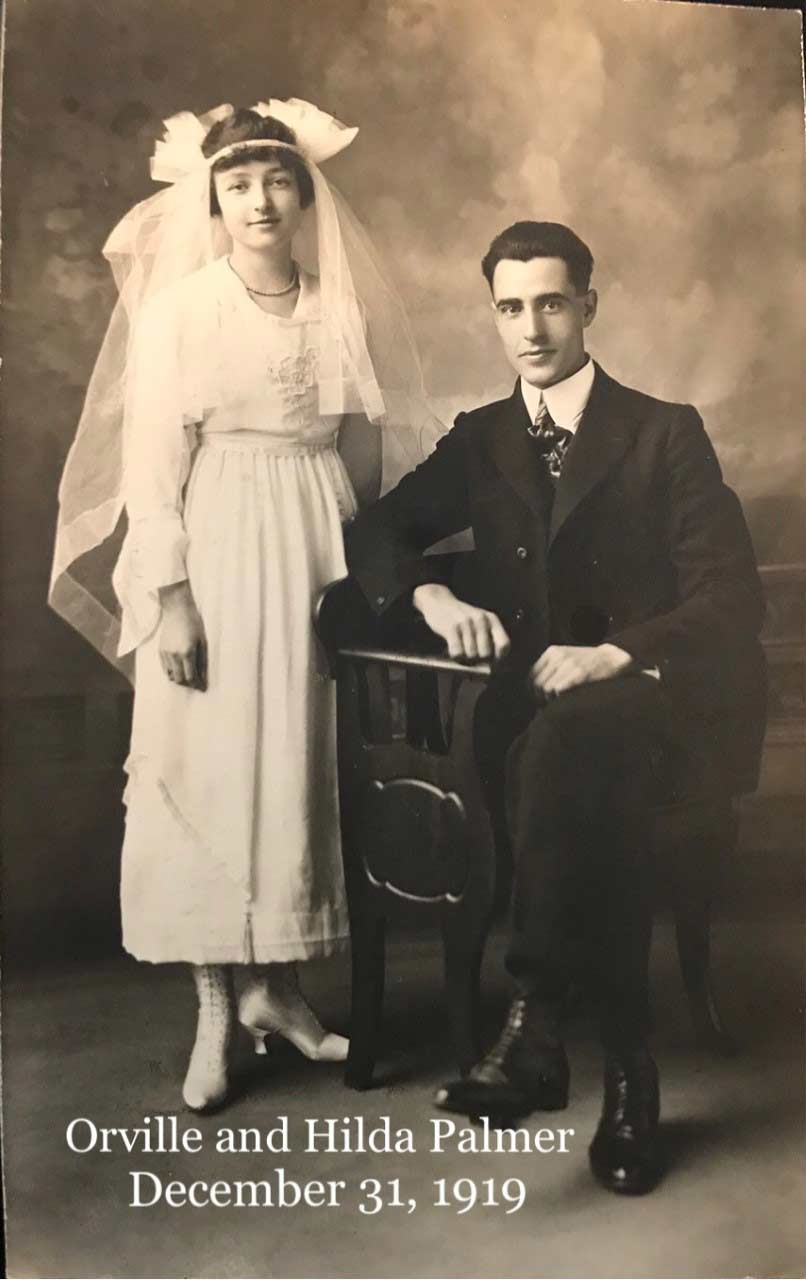
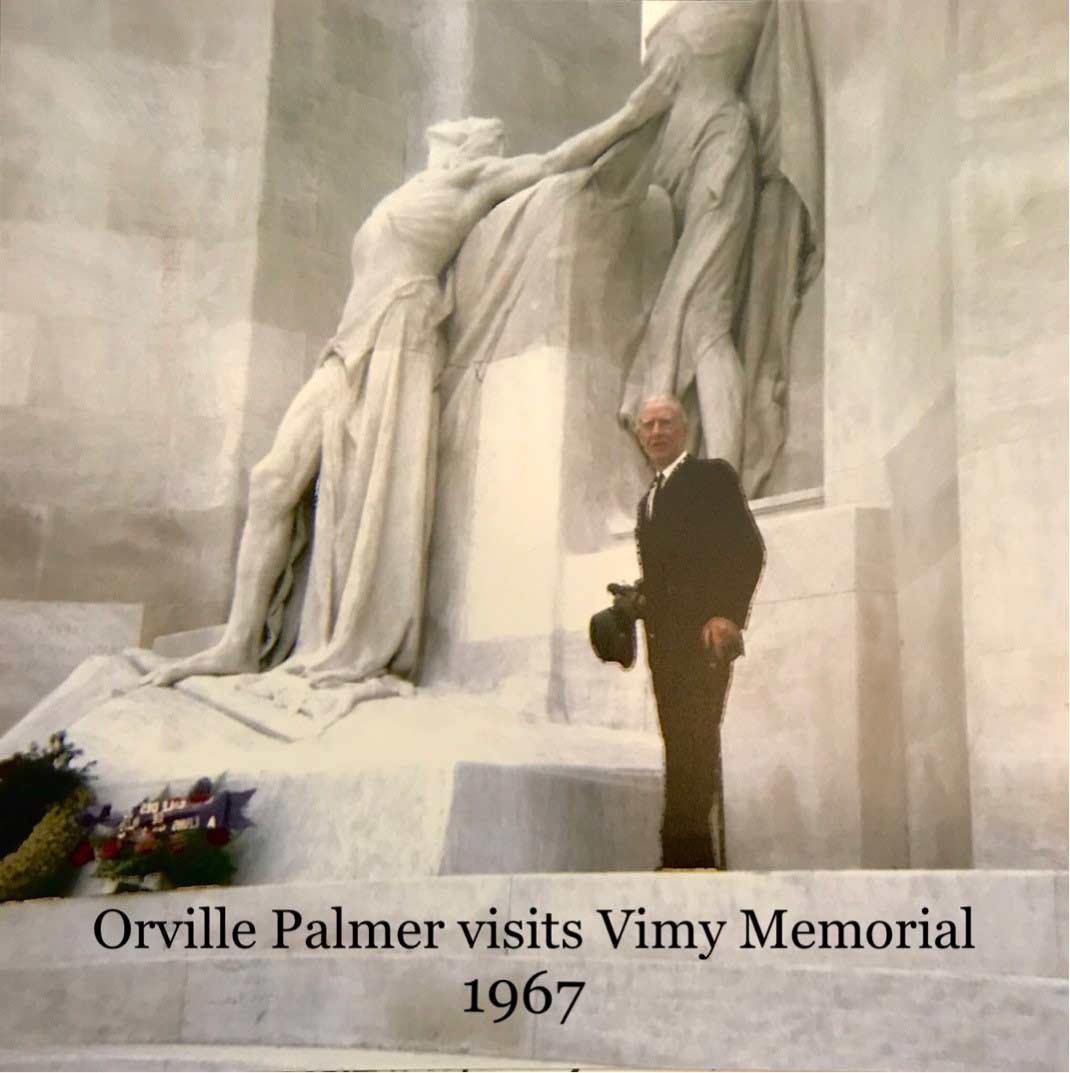
Our grandfather, Hulbert “Orville” Hoover Palmer (Born in Winnipeg, Manitoba August 31st, 1895 – Died in Edmonton, Alberta October 23rd, 1971 interred in Edmonton Beechmount Cemetery ) and my great uncle Dukeland “Duke” Denton Samson Palmer (Born in Goderich, Ontario January 21st, 1897 – Died in Edmonton, Alberta December 15th, 1918 interred in Edmonton Cemetery) both enlisted into Edmonton’s Loyal Forty-Ninth Regiment on March 11th, 1915.
Though diary keeping was forbidden, my grandfather jotted down some of his thoughts and activities during the war from Ypres to the Somme, Vimy to Passchendaele on to Mons, Belgium and the Armistice, that is why I am able to relay some of his entries on to you today.
Between Picardy and the Somme, my great uncle Duke had been hospitalized for what was called “trench fever”, which was an infection carried by the lice that the soldiers were all plagued with. Duke had just returned to action when my grandfather, Orville, came across Duke lying wounded in a trench. My grandfather couldn’t stop so the two of them shook hands, looked at one another, and understood the situation as my grandfather, under orders, had to carry on. Later, my grandfather received permission to try and get Duke out of harm’s way, so he scurried back as fast as he could before the orders to retreat were given. My grandfather had a difficult job in getting his brother to move as he was moaning and pushing him away as Duke was a bit delirious with the pain. As Orville struggled along, carrying Duke across his shoulders, he sank deep into the gluey mud due to the extra weight. At this point, the two of them were in a very narrow communications trench when they came face to face with about six men approaching from the opposite direction. As neither party could go over the top and risk getting shot, the leader gestured for all of them to follow his lead by laying flat down on his front in the mud and water. My grandfather plunged ahead as fast as he could over top of them as he felt their bones grinding under his boots. A good bunch of cursing filled the air and there would soon be bruising to follow, along with the unmentionable filth all over them, after the obliging chaps got up. Orville got the unconscious Duke to the Regimental Aid Post but had to leave him there, worrying that Duke might contract gangrene poisoning. Orville had done his very best considering the circumstances, and later heard that Duke had made it to a hospital in Liverpool and was leaving on the next boat for Canada.
As the War thundered on and everyone was wondering when Peace might come, my grandfather found himself in Mons, Belgium on November 11th, 1918, Armistice Day! He just wasn’t sure whether this was a cruel joke or not, but it surely did come! Hostilities ceased that morning at 11:00 a.m. Everyone was in great glee! With the Armistice on, the War would be over in no time! The people of Mons didn’t seem to know just what to do to adequately demonstrate how thankful they were, so they sang songs and played every musical instrument they could put their hands on and the carillon in the Mons Tower kept its chimes ringing for hours! It was on December 28th, 1918, more than a month and a half after Armistice, that my grandfather received a telegram from his father that said that Duke had died on December 15th, 1918 of the Spanish Flu that was sweeping the North American continent. It was very shocking for my grandfather to understand this news, and it stunned him as it seemed ironic that Duke should be the one to die when Orville was the one at the front line.
In March of 1919 the City of Mons sent small medals to each soldier who had taken part in the recapture of their city as a token of their appreciation. The medals were made of a light, cheap metal but it was not their material value that counted with either the Belgians of Mons or with them. They were just pretty proud to have received them!
On March 22nd, 1919 after crossing over the High Level Bridge and into the CPR Station on 109thStreet, Orville arrived back in Edmonton to a big crowd milling around the station platform with bands playing and banners flying; a real holiday scene! Nine months later, on December 31st, 1919 my grandfather married my grandmother, Hilda, in Edmonton. Their marriage was a happy and successful one and produced four healthy children.
We, as a family, marvel to this day as to how our grandfather ended up being such a balanced and optimist human being after realizing all of the hardship and danger he had been through. His loyalties, his courage, and his faith, plus the importance of mail and parcels he received from home, helped him to persevere. We are all incredibly aware that we would not even be here today if things had turned out differently for our grandfather during his service in World War I.
Submitted by the Extended Palmer Family